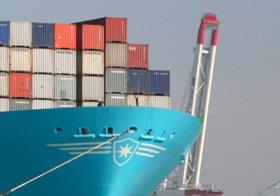
Container lines struggling to make money shipping Chinese-made goods to the US are experiencing a surge in lucrative shipments of fresh produce in the other direction, reports business news site Bloomberg.
Container shipping group APL has seen a 46 per cent jump in refrigerated-container shipments to China from the US this year, according to Piers data, as higher wages and quality concerns stoke demand for imported food, the site said.
The need for specialised refrigerated (reefer) containers, means rates are about four times higher than those for carrying a standard box from Shanghai to Los Angeles, according to the report.
"There's an opportunity in the reefer market," Tim Smith, the North Asia head at Maersk Line, the world's largest container-ship operator, told Bloomberg.
In China, the level of disposable incomes has increased a lot, so we think they'll want more high-quality foods and perishable products, he said.
Copenhagen-based Maersk's shipping arm plans to invest more than US$1bn in refrigerated containers over two years, Smith told Bloomberg. Revenue from chilled cargo may rise more than 10 per cent next year after "major" growth this year, he said.
The use of containers for perishable goods has boosted the availability of imported fruit in China, Ye Jianqing, who runs Cidoko Fruit store in Shanghai's People's Square district, told Bloomberg.
Imported produce generally costs about 50 per cent more than local goods, said the fruit seller, who offers pomelos from Thailand at 34 yuan (US$5) apiece and US grapes for 30 yuan per 500 grams.
"Chinese consumers used to feel that buying imported fruit was extravagant," he said. "But as Shanghai becomes more developed, the standard of living is higher and consumers have changed their thinking."
Food-safety scares over Chinese-grown produce have also fueled the trend, the report said.



